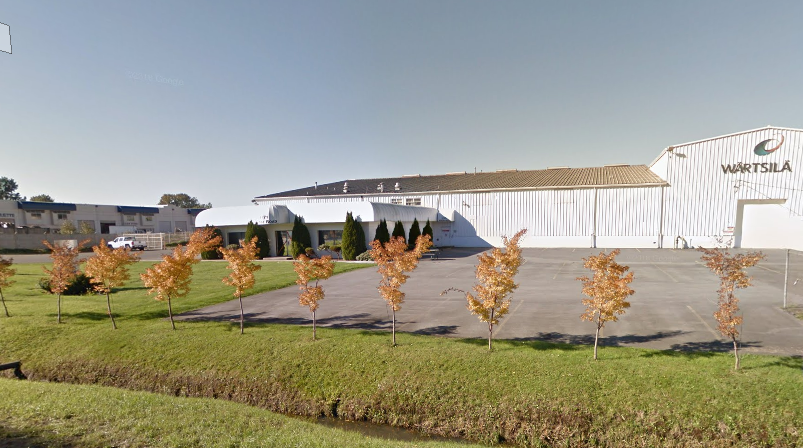Industrial real estate sales in both Richmond and Delta, B.C., set new records last year, fuelled by extremely high demand, according to the latest report by Avison Young.
With 79 transactions totalling a record $331.3 million, Richmond’s industrial sales in 2018 surpassed previous years in both number of transactions and total dollar amount. In 2017, Richmond had 74 industrial sales totalling under $320 million.
The commercial real estate firm’s fall 2019 report noted that strata units in Richmond were particularly popular, a trend that continued through the first nine months of 2019.
The report also noted that most new industrial construction in Richmond is comprised of strata projects.
In 2018, two notable transactions in Richmond were the $57.4 million sale of 1751 and 1771 Savage Road, near River Road, and the $22 million sale of 9160-9200 Van Horne Way, near the Oak Street Bridge.
Strata sales also made up a large portion of Richmond's transactions from January to September of this year. The largest strata sale in this period was the $21.9 million sale of 11511 No. 5 Road near Horseshoe Way – a single-tenant industrial building with renovated office space.
Delta sales soaring
With 53 deals valued at $396.6 million, Delta industrial sales last year surpassed all previous records, said Avison Young. Like in Richmond, strata units were particularly a hot commodity in Delta — again, a trend that has also largely carried through the first nine months of 2019.
The highlights include the $151.2 million sale of the South Fraser Distribution Centre, which was the largest industrial deal in B.C. in 2018, and the $48.3 million disposition of 480 Audley Blvd., which was purchased by the Vancouver Fraser Port Authority.
Also contributing to the record dollar volume were 15 strata sales in the first two phases of Delta Link Business Centre that were valued at more than $59.8 million.
The $42.5 million sale of Delta Building Products Ltd.'s building also contributed significantly to total volume.
Lack of supply
Avison Young noted that sales activity has remained strong despite a lack of new supply and record-low industrial vacancy in both Richmond and Delta. Rental activity, however, was weaker in 2018.
“Investors will continue to find it increasingly difficult to buy properties in Richmond and Delta compared with other select Metro Vancouver markets where there is still room to grow rental rates and new construction is providing acquisition opportunities,” reads the report.
“Vacancy is expected to remain at or near record lows for the next 12 to 24 months as strata development remains a substantial component of the new supply being delivered.”
An August 2019 report by Metro Vancouver’s Industrial Land Strategy Task Force came to a similar conclusion.
The task force retained a consultant to help determine the changing nature of industrial land demand in the Metro Vancouver region.
“There is a severe shortage of available industrial land (in the region), and demand is strong. The consultant found that the identified ‘vacant’ inventory will be taken up in 22 to 28 years, assuming 100 per cent of the undeveloped inventory is available for industrial development in this time frame,” the report reads.
Some factors that could alter the outlook for industrial land, according to the report, are rising sea levels or flooding, occupancy of industrial land by industrial, commercial or other spaces and densification and intensification.
Factors that could affect the demand for industrial land include global changes or changes to the regional economy, technology and automation, population growth and consumer behavior.
The report also recommended several policy directions, including greater measures to protect existing inventory, intensification or densification of industrial land use or increasing the inventory of vacant industrial land.
“This will clearly be a challenging policy direction as there are no uncontroversial ways to shift land from other uses to industrial. However, if the region wants to maintain the full dimensions of its economic and employment diversity, it is necessary to confront the challenge of being able to accommodate large manufacturing and logistics users,” the report explains.
— With files from Delta Optimist



